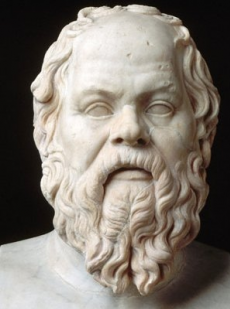

Westphal outlines the difference between philosophy of theology (God) and philosophy of religion. Traditional arguments for the existence of God (e.g. Ontological, and Design) had been heavily criticised by Hume and Kant. People therefore moved on from talking about God to discussing religion, however Westphal states that Hegel did not like the assumption that we can only talk of religion and not God, yet devised the term philosophy of religion himself. Hegel believed that you can still speak about God. Whilst James would agree with this as he describes the varieties of religious experiences (RE), Ayer’s views contrasts. The type of experience that is ‘ineffable’ to James is perfectly reasonable as one is experiencing a transcendent being beyond our understanding but Ayer claims this is ‘nonsense’ as it cannot be empirically tested (following the verification principle.)
Westphal distinguished the difference between scholasticism and deism. Whilst scholasticism is specific and says reason is harmonious with faith and revelation, deism is general and reasonable (relying on reason rather than revelation.) Scholastics sought that you can study the world and draw rational conclusions from it about God, conclusions which fit in with teachings (e.g in bible). The design argument demonstrates this e.g. Paley’s watch analogy where the conclusion drawn is that the complexity of this world signifies a creator. Kant says the wish for deism is to bring religion ‘within the limits of reason alone’ separating the rational kernel (the basis of religion) from the irrational husk (e.g. prayer and worship) and then removing the husk. This influenced Bultmann’s notion of demythologising; where once you remove the miraculous events you are left with the essential significance (kerygma) of the statement. Enlightenment is the shift in society’s way of thinking from theology to rationality and reason. Deism can be called ‘the religion of Enlightenment,’ Kant stated that this was the emergence of the human race from a state of immaturity, i.e. relying on authorities, to a state of maturity. Hitchens describes religion as ‘the main source of hatred in the world.’ Deists saw that religion was involved in too many wars so rather than eliminate religion, they wanted religion to be something which encourages people to be more tolerant and united.
The powerful themes of deism (importance of universality, value of tolerance and desire for reason to have authority) link with human rights. Kant’s disproval of traditional arguments meant he needed to find a new route. Kant believed a consistent moral system could be made using reason, without the need for dependence on God by ‘acting only according to that maxim whereby you can at the same time will that it should become a universal law.’ Humans must act morally to reach perfection in the afterlife, known as ‘Summum Bonum.’ He believed that although God’s existence cannot be proved by reason, his proposed moral argument shows we must presuppose his existence to be moral. For Kant, removing the husk would lead to a church free of superstition. His term ‘fetish faith’ describes meaningless rituals influenced by religions, e.g. Muslims praying towards Mecca.
Image Credits:
https://sites.google.com/site/frpetersphilosophy/_/rsrc/1467138593532/home/socrates.jpg

0 Comment:
Be the first one to comment on this article.